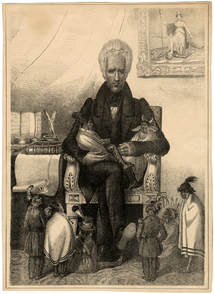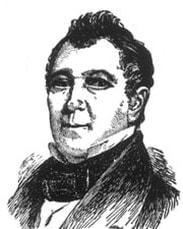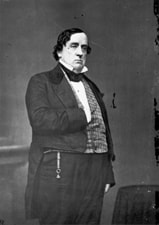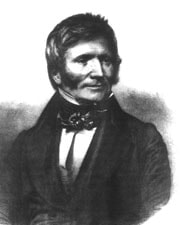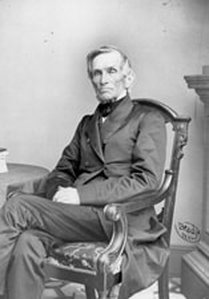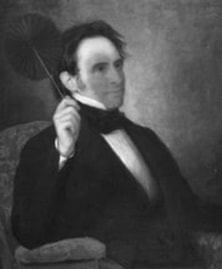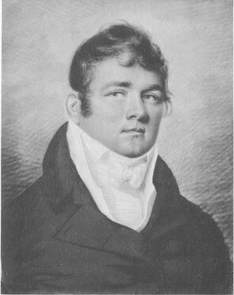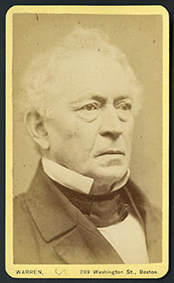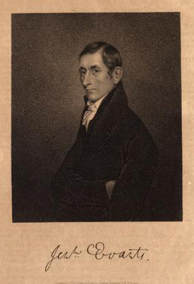Political Conflict
Conflicting views over removal sparked massive debate in Congress that fell along geographical and partisan lines. Despite opposition, the Indian Removal Act passed the Senate 28-19 and narrowly passed the House 102-97.
“That those tribes can not exist surrounded by our settlements and in continual contact with our citizens is certain. They have neither the intelligence, the industry, the moral habits, nor the desire of improvement which are essential to any favorable change in their condition. Established in the midst of another and a superior race, and without appreciating the causes of their inferiority or seeking to control them, they must necessarily yield to the force of circumstances and ere long disappear.” - President Andrew Jackson
Theda Perdue, 10 Apr. 2016, YouTube
Supporters
President Jackson, Wilson Lumpkin, Lewis Cass, John Forsyth and others who supported removal argued that American Indians were inferior, unintelligent, vulnerable, and unable to care for themselves. Jackson took a paternalistic view that removal was a way of protecting them. Supporters thought national security, states rights, and the expansion and development of the country superseded previous agreements made in treaties.
President Jackson, Wilson Lumpkin, Lewis Cass, John Forsyth and others who supported removal argued that American Indians were inferior, unintelligent, vulnerable, and unable to care for themselves. Jackson took a paternalistic view that removal was a way of protecting them. Supporters thought national security, states rights, and the expansion and development of the country superseded previous agreements made in treaties.
|
"A race not admitted to be equal to the rest of the community; not governed as completely dependent; treated somewhat like human beings, but not admitted to be freemen; not yet entitled, and probably never will be entitled, to equal civil and political rights." - Senator John Forsyth, (Democrat) of Georgia
|
Opponents
Senators Theodore Frelinghuysen, Peleg Sprague, Henry Storrs and Edward Everett, leading the opposition to the bill, considered removal as oppressive and unconstitutional. They felt the United States should honor its treaties and protect tribes from encroachment by settlers and state governments.
Senators Theodore Frelinghuysen, Peleg Sprague, Henry Storrs and Edward Everett, leading the opposition to the bill, considered removal as oppressive and unconstitutional. They felt the United States should honor its treaties and protect tribes from encroachment by settlers and state governments.
"The treaty contains many reciprocal stipulations of the 'contracting parties.' Will it be contended that we are not bound by them because the other party was conquered--in other words because we were the strongest? If the United States made terms of peace should they not abide by them? If a besieged town capitulates, are not the articles of capitulation obligatory?"
- Senator Peleg Sprague, (Anti-Jacksonian) of Maine |
"The evil, Sir, is enormous; the inevitable suffering incalculable. Do not stain the fair fame of the country.... Nations of dependent Indians, against their will, under color of law, are driven from their homes into the wilderness. You cannot explain it; you cannot reason it away.... Our friends will view this measure with sorrow, and our enemies alone with joy. And we ourselves, Sir, when the interests and passions of the day are past, shall look back upon it, I fear, with self-reproach, and a regret as bitter as unavailing."
- Senator Edward Everett, (Whig) of Massachusetts |
|
“...it has become almost a certainty that these people are to have their lands torn from them, and to be driven into western wilds and to final annihilation, unless the feelings of a humane and Christian nation shall be aroused to prevent the unhallowed sacrifice.”
- Catherine Beecher |
"When, therefore, injury and oppression threaten to crush a hapless people within our borders, we, the feeblest of the feeble, appeal with confidence to those who should be the representatives of national virtues as they are depositories of national powers, and implore them to succor the weak & unfortunate."
-Ladies of Steubenville
-Ladies of Steubenville
